Are you planning to replace your home’s flooring?
Flooring is a relatively crucial part of your home’s interior. Natural stone flooring is attractive and makes a great focal point for a home. Compared to synthetic stone alternatives, they are more lasting. Many buildings use natural stone flooring as natural stone tiles come straight from the earth, so each one is unique and will have natural changes. Because of their durability and elegance, stone tiles are an excellent choice for flooring. Indoor stone flooring could provide an elevated look and timeless elegance. Natural stone flooring comes in a wide range, and each has its own charm and features. Types of stone flooring that are best for homes are following
Marble flooring
Marble flooring is well-known for its iconic, luxurious appearance, dramatic veining, matte finish, and elevated finish. It is available in a variety of colors. Marble is the most popular natural stone flooring choice for bathrooms to achieve a spa-like atmosphere. It is an excellent choice for flooring and countertops in many homes.
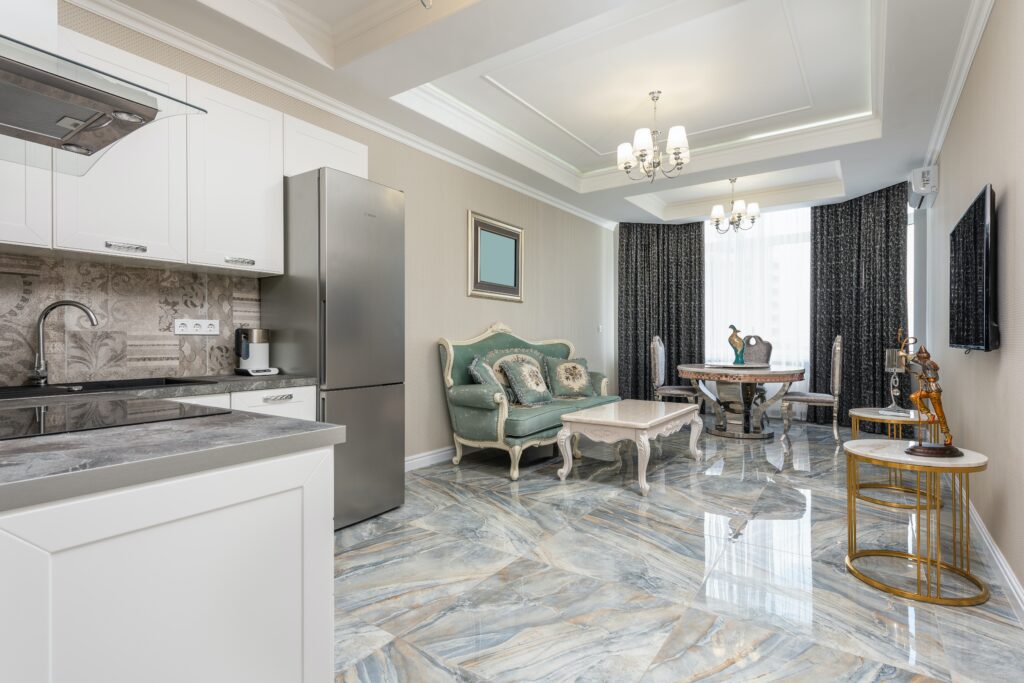
Benefits of Marble Flooring
Mazing patterns and uniqueness
Beautiful colors
Eco-friendly
Resist dust and allergenic organisms
Safe and long-lasting
Downsides
Bathroom products, such as toothpaste, contain acids that can harm marble.
Regular repairs with DIY goods are essential in the stone kitchen flooring.
Granite Flooring
Magma that cools underground and contains various minerals makes granite flooring. Granite flooring has a hard edge and an appealing natural grain. It gives any room a luxurious and elegant feel. Granite bathrooms and kitchens are trendy in today’s residences.
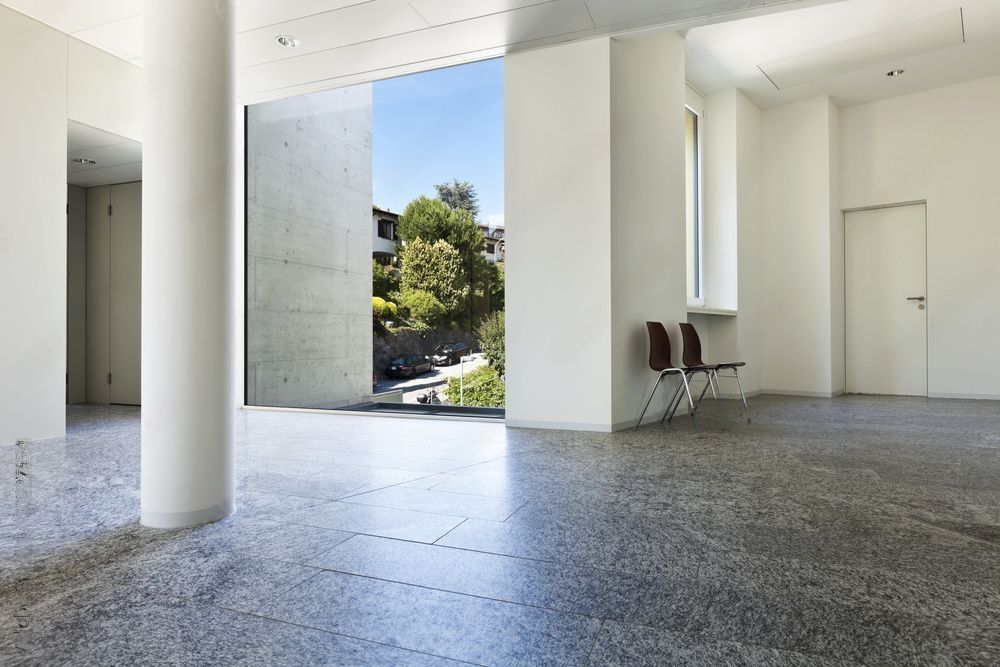
Benefits of Granite Flooring
Variety of colors
Hard texture
Fantastic paving stone
Beautiful and unique designs
Downsides
Granite flooring requires adequate support. Granite tiles can easily crack if any tiny alleys or bumps are present.
Granite’s strength is also its weakness, as it is challenging, so subfloor leveling is essential when installing stone flooring.
Slate Flooring
Slate is a splendid porous stone. Modern slate flooring is suitable for the home’s wet and dry areas. It is a highly desired and appropriate material to use to create a comfortable environment in the house. Slate comes in black, grey, and gold finishes.
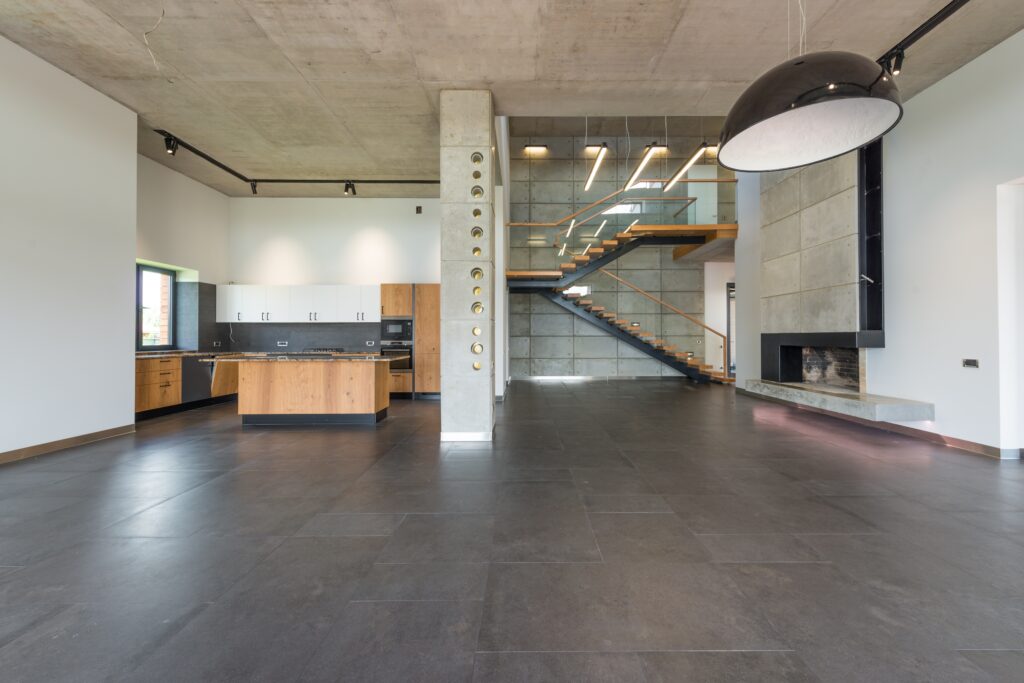
Benefits of Slate Flooring
Attractive appearance
Durability
Stain-resistant and water-resistant
Neat and earthy
Available in a variety of colors
Downsides
Because of the quality of tile layering, slate tiles may be uneven. If the basic structure is unequal, the slate can crack.
If things drop on the tiles, it will cause minor surface cracks.
Travertine Tile Flooring
Travertine stone is similar to marble or limestone due to its similar manufacturing process. Calcite, a sedimentary rock, is used to make it. These floors are highly porous and do not heat up quickly. Hot spring water bubbles through limestone to form travertine.
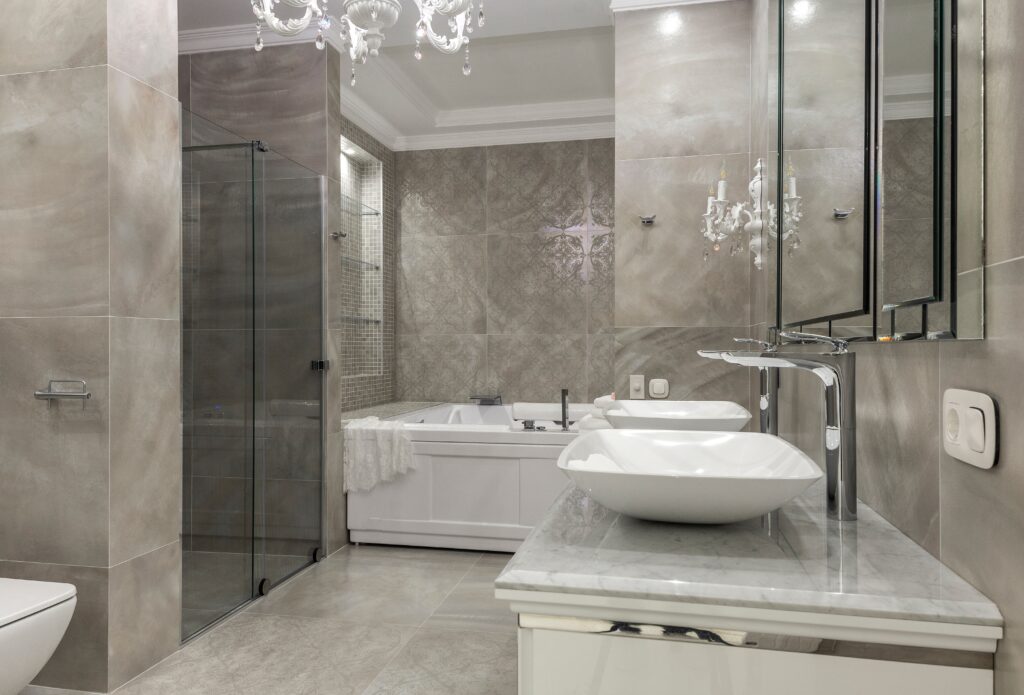
Benefits of Travertine Flooring
Create a welcoming atmosphere
Several designs
Can be sharpened or edged
Less expensive
Downsides
Travertine stone is sensitive and porous, absorbs water, and shows signs of wear and tear after a while.
It is necessary to apply a protective sealant before and after grouting.
It scratches more easily and stains more quickly if not treated.
Limestone Flooring
Limestone is suitable for various decorating styles, from traditional to contemporary. Road bases, railroad ballast, and concrete aggregate use limestone due to its durability. This limestone is composed of calcium carbonate in the mineral calcite, similar to marble.
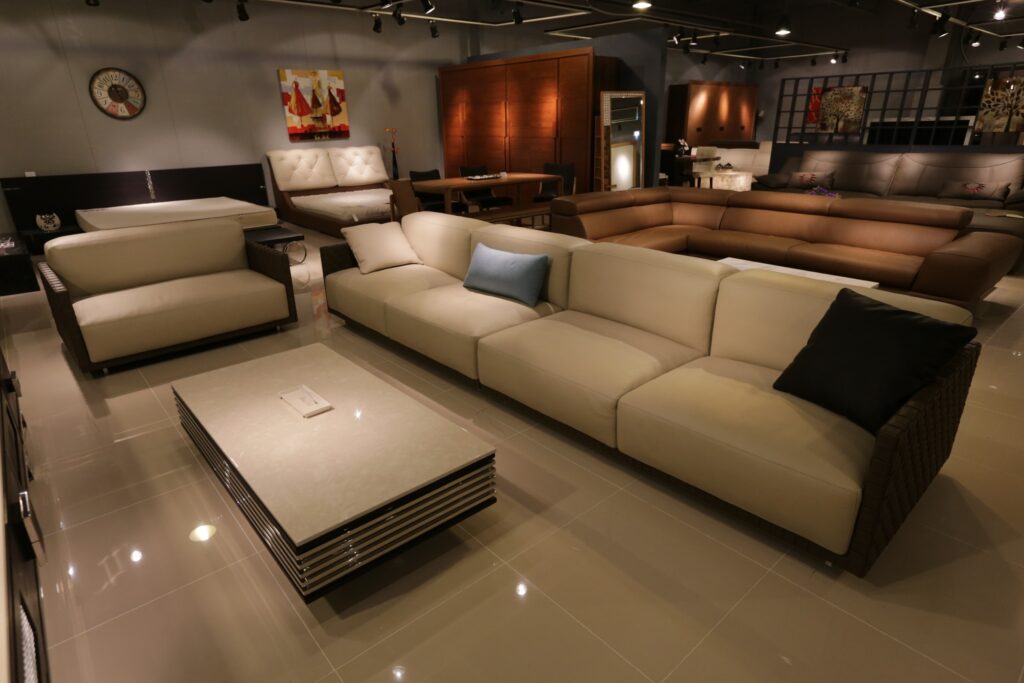
Benefits of Limestone Flooring
Resistant to heavy foot traffic
Variety of colors
Sophisticated appearance
Resistant to freezing temperatures
Simple to clean.
Downsides
A few stones are more fragile and easily break.
Limestone needs the same care and upkeep as marble.
Characteristics of Natural Stone Flooring
Durable
Stone flooring is long-lasting. It can bear heavy traffic, making it an excellent choice for hallways and bathrooms. It is generally easy to maintain and doesn’t need a lot of maintenance or replacement.
Easy to Clean
Stone flooring messes are quickly tidied or cleaned up. Stone flooring does not trap allergens, making it ideal for allergy sufferers. Unlike wood flooring, the stone is naturally moisture- and stain-resistant.
Temperature Control
Stone flooring is excellent for regulating the temperature in your home. Stone can keep a room cool, which is ideal for hot climates. For those who live in cold winter climates, heated stone floor options are also available.
Adorn the Property
Natural stone is genuine, rather than processed or manufactured. Each tile has unique spots, veins, and colors, giving your floor a distinctively beautiful and stylish appearance that can complement any decor.
Aesthetics
Stone flooring is available in various colors, styles, and patterns. It has the cozy, natural feel of hardwood, but the artistic flexibility of ceramic tile. These tiles will create an iconic look that will add value to your property. Whatever your aesthetic and functional requirements, there is a stone to meet them. Stone floors have a classy and elegant appearance that is best for kitchens, especially when paired with matching countertops.
